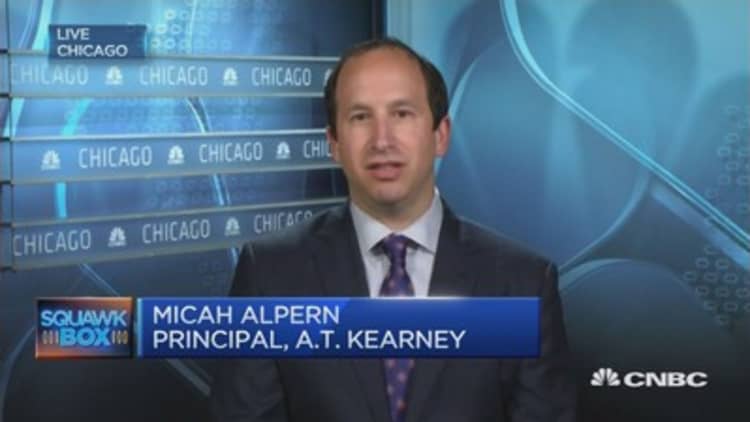One of the U.S. government's most powerful consumer protection watchdogs appears to be quietly probing Uber and the company's privacy practices.
The inquiry is under way at the Federal Trade Commission, according to four sources familiar with the matter, where the agency's investigative staff appears to have focused its attention on some of the data-handling mishaps that have plagued the company in recent years — perhaps including employees' misuse of "god view," a tool that had previously allowed some at Uber to spy on the whereabouts of politicians, celebrities and others using the ride-hailing app.
The sources cautioned to Recode that FTC staff regularly question companies on consumer-protection matters, like privacy — and often, the agency chooses not to pursue any penalties while closing its investigations as quietly as it began them.
Still, the scrutiny could easily blossom into a full-fledged legal complaint against Uber — a reality the company knows well. This January, the agency penalized Uber for misleading claims about drivers' potential earnings as well as the ride-hailing company's vehicle-financing program. The resulting settlement with the FTC required Uber to pay $20 million in refunds to affected drivers.
More From Recode:
More manufacturing jobs came back to the US than left last year
Read Mark Zuckerberg's full commencement address at Harvard
Mark Zuckerberg called on Harvard's graduates to help save the environment and cure all disease
This time, the full extent of Uber's conversations with the FTC remains unclear. A spokeswoman for the company declined comment this week, as did an aide to the agency's chairman, Maureen Ohlhausen.
For Uber, the FTC's interest is only its latest headache. It has had to address allegations of sexism in the workplace; it's grappled with the missteps of its chief executive, Travis Kalanick, who on Tuesday revealed he would take a leave of absence from the company; and it finds itself locked in a legal war against Google amid accusations that one of Uber's former top engineers stole self-driving car technology from the search giant.

Nor is an FTC probe the only pending government investigation into Uber's conduct: Another federal agency, the Justice Department, appears to have opened a criminal probe into the company's use of software, called "Greyball," that essentially allowed Uber to hide rides from regulators — particularly in cities where Uber did not have permission to operate its service.
For its part, the FTC doesn't bring criminal cases, but it can force companies — through a variety of means — to alter their business practices.
Sometimes, the agency takes action through what are called closing letters, a public acknowledgement that the FTC has looked into an incident — and could punish a company if it errs again.
In other cases, though, the FTC can file a formal legal complaint alleging a company misled its consumers, treated them unfairly or threatened corporate competitors. Those complaints are settled if a company agrees to change its practices, or they're fought over in court if a company disputes the government's charges.
In recent years, the FTC has brokered such settlements with the likes of Facebook, Google and Twitter, including for mishaps related to mishandling users' data. In those cases, the agency's punishments often have included a requirement that tech companies submit to 20 years of regular privacy checkups by the FTC.
—By Tony Romm, Recode.net.
CNBC's parent NBCUniversal is an investor in Recode's parent Vox, and the companies have a content-sharing arrangement.
Watch: Pro says Uber needs to refine, redefine its culture


